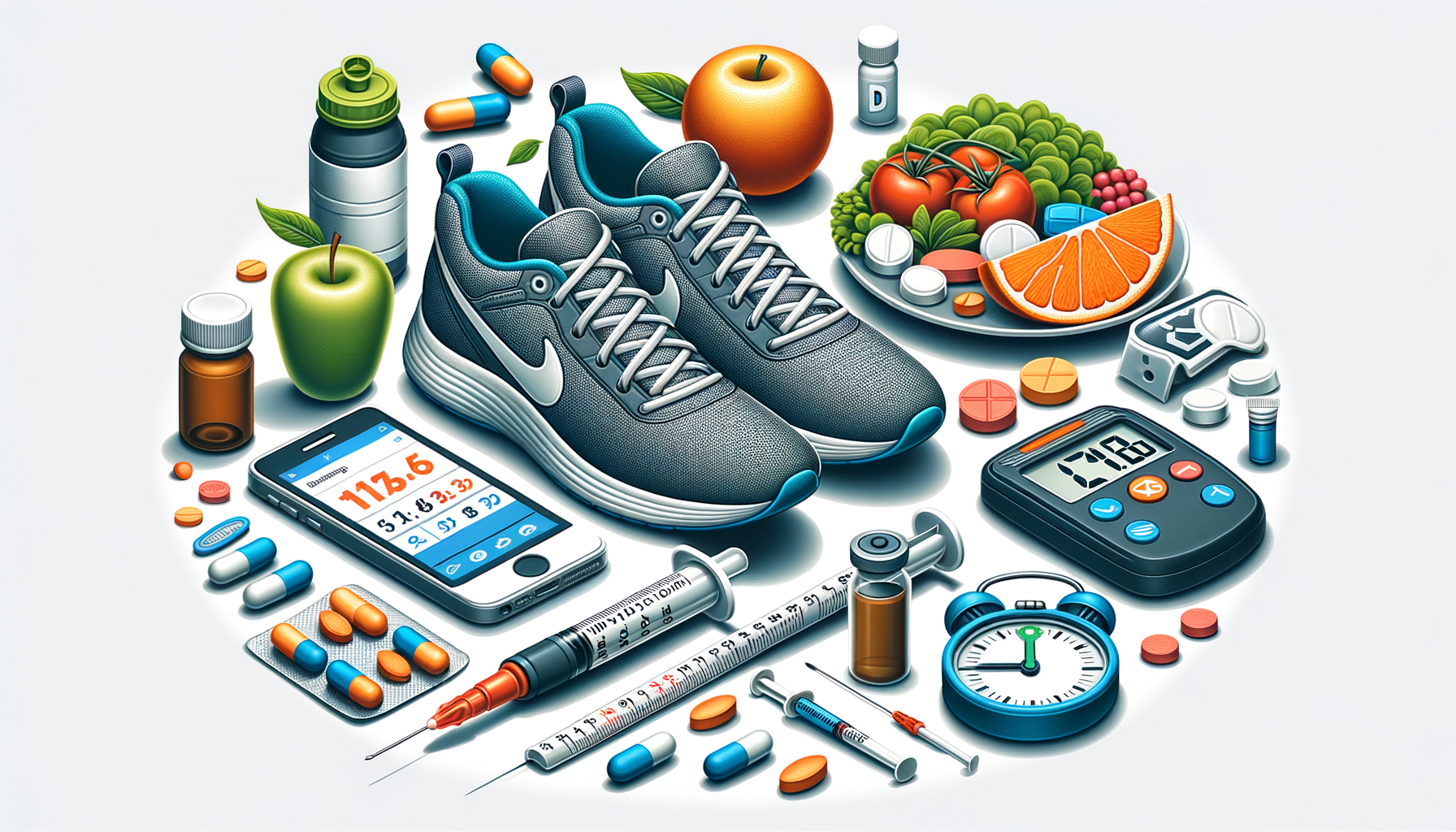
A Guide to Managing Type 2 Diabetes: Exploring Treatment Options and Lifestyle Strategies
Type 2 Diabetes Treatment Options
Type 2 diabetes, a chronic condition affecting millions worldwide, requires a strategic approach to management. Treatment options range from lifestyle modifications to medications and, in some cases, surgical interventions. Understanding these options is crucial for effective management.
Non-pharmacological interventions often serve as the first line of treatment. These include dietary changes, increased physical activity, and weight management. A balanced diet rich in whole grains, lean proteins, and vegetables can help stabilize blood sugar levels. Regular physical activity, such as walking or cycling, enhances insulin sensitivity and aids in weight control.
For those who need additional support, medications are available. These include oral drugs that help the body use insulin more efficiently, and injectable medications that lower blood sugar levels. In some cases, newer treatments like GLP-1 receptor agonists or SGLT2 inhibitors are recommended for their dual benefits of glucose control and cardiovascular protection.
In severe cases, bariatric surgery might be considered, especially for individuals with obesity. This can lead to significant weight loss and improved blood sugar levels. Each treatment plan should be personalized, taking into account the individual’s health status and lifestyle.
Lifestyle Changes for Diabetes
Embracing lifestyle changes is a cornerstone of managing type 2 diabetes. These changes not only help in controlling blood sugar levels but also improve overall health. The key areas to focus on include diet, physical activity, and stress management.
A diabetes-friendly diet emphasizes the importance of portion control and nutrient-dense foods. Incorporating fiber-rich foods like fruits, vegetables, and whole grains can slow down glucose absorption. Lean proteins such as fish, poultry, and legumes support muscle health and satiety.
Physical activity is another vital component. Engaging in regular exercise, such as brisk walking, swimming, or yoga, helps lower blood sugar levels and reduces the risk of cardiovascular diseases. Exercise also promotes weight loss, which can significantly improve insulin sensitivity.
Managing stress through techniques like meditation, deep breathing exercises, or hobbies can also play a role in diabetes management. Chronic stress can lead to poor eating habits and increased blood sugar levels, so finding effective ways to relax is essential.
Diabetes Medications List
For many individuals with type 2 diabetes, medications are an integral part of the treatment regimen. These medications work in various ways to help control blood sugar levels. It is important to understand the different classes of diabetes medications and their functions.
Common oral medications include Metformin, which decreases glucose production in the liver and improves insulin sensitivity. Sulfonylureas stimulate the pancreas to produce more insulin, while DPP-4 inhibitors help increase insulin release and decrease glucagon levels.
Injectable medications such as insulin are crucial for those who cannot achieve adequate control with oral drugs alone. Insulin therapy involves different types, including rapid-acting, long-acting, and intermediate-acting insulin, tailored to the individual’s needs.
Newer classes of medications, like GLP-1 receptor agonists and SGLT2 inhibitors, offer additional benefits. These not only help in glucose control but also provide cardiovascular protection and aid in weight loss. The choice of medication depends on the individual’s health profile and treatment goals.
Advanced Therapies for Diabetes Management
In addition to traditional treatment methods, advanced therapies are emerging as viable options for managing type 2 diabetes. These therapies aim to provide more personalized and effective management of the condition.
Continuous glucose monitoring (CGM) systems allow individuals to track their blood sugar levels in real-time. This provides valuable insights into how different foods, activities, and medications affect glucose levels, enabling more precise adjustments to treatment plans.
Insulin pump therapy is another advanced option, offering a continuous supply of insulin throughout the day. This mimics the body’s natural insulin release and can be more convenient than multiple daily injections. Insulin pumps are often used in conjunction with CGM systems for optimal control.
Research into potential therapies such as islet cell transplantation and artificial pancreas systems is ongoing. These therapies aim to restore normal insulin production and regulation, offering hope for those with severe diabetes.
Conclusion: Navigating Your Diabetes Journey
Managing type 2 diabetes involves a multifaceted approach that includes lifestyle changes, medications, and possibly advanced therapies. By understanding the available treatment options, individuals can make informed decisions that align with their health goals and lifestyles.
It’s important to work closely with healthcare providers to tailor a treatment plan that addresses individual needs. With the right strategies in place, managing diabetes can become a manageable part of daily life, reducing the risk of complications and enhancing overall well-being.